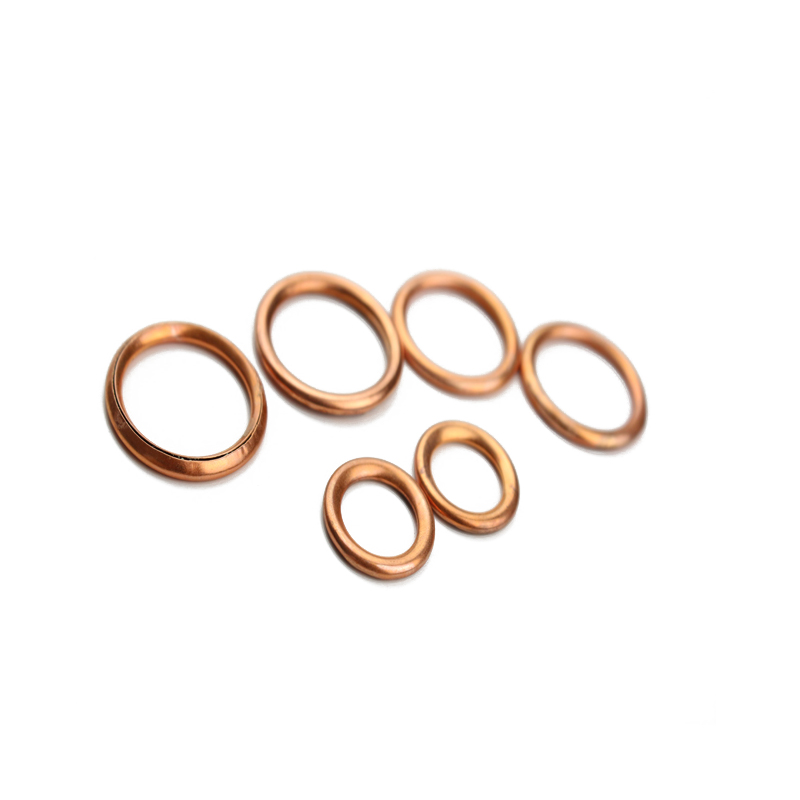Choosing the Right Engine Oil Seal for Your Car Maintenance Needs
Understanding Car Engine Oil Seals The Unsung Heroes of Automotive Performance
When it comes to the smooth functioning of a car engine, many components play vital roles, but one often overlooked is the engine oil seal. Engine oil seals are crucial for maintaining the integrity and performance of an engine. They serve as barriers that prevent oil from leaking out, while also protecting internal components from dust, dirt, and other contaminants. Understanding the importance and function of engine oil seals is essential for any car owner who wishes to maintain their vehicle's performance and longevity.
What Are Engine Oil Seals?
Engine oil seals are specifically designed components that fit into the engine block and prevent oil leaks. Made from materials like rubber or silicone, these seals ensure that oil remains in the engine where it is needed for lubrication. By forming a tight seal between moving parts, they help to minimize wear and tear, thereby extending the lifespan of the engine.
There are different types of oil seals used in various parts of the engine. Typically, you will find them around the crankshaft, camshaft, and transmission components. Each seal is tailored to accommodate the specific dimensions and movement of the engine parts they support.
The Importance of Oil Seals
1. Preventing Oil Leaks The primary function of engine oil seals is to keep engine oil from leaking out. Oil leaks can lead to insufficient lubrication, which could result in serious engine damage or failure. A well-functioning oil seal ensures that the oil remains within the engine, promoting its health and efficiency.
2. Protecting Internal Components In addition to keeping oil in, oil seals also prevent contaminants from entering the engine. Dust, dirt, and debris can cause significant damage to engine components. Oil seals act as a protective barrier, allowing the engine to operate smoothly without the threat of harmful particles.
car engine oil seal

3. Maintaining Pressure Engine oil seals are designed to maintain the necessary pressure within the engine. Proper oil pressure is critical for effective lubrication and cooling. When oil seals are compromised, it can lead to a drop in pressure, causing your engine to heat up and operate inefficiently.
4. Improving Engine Performance A well-sealed engine runs more efficiently. Reduced friction from proper lubrication enhances performance, resulting in better fuel economy and smoother operation. An effective oil sealing system allows the engine to reach its optimal performance without unnecessary strain.
Signs of Worn or Failed Oil Seals
Over time, engine oil seals can wear out or fail due to exposure to heat, pressure, and the various chemicals present in engine oil. It is vital for vehicle owners to be aware of the signs indicating a problem
- Oil Spots If you notice oil puddles or spots underneath your vehicle after parking, it could be a sign of a leaking oil seal. - Low Oil Levels Regularly checking your engine oil levels is crucial. A drop in oil levels without any apparent external leaks might suggest internal leaks due to faulty seals. - Engine Overheating If your engine is consistently overheating, it may be due to inadequate lubrication linked to compromised oil seals.
Conclusion
In conclusion, while car engine oil seals may not be the most glamorous component of an automobile, they play a pivotal role in ensuring the engine operates efficiently. Regular maintenance checks can help identify potential issues early and prevent costly repairs down the line. If you suspect a problem with your engine oil seals, it’s wise to consult a professional mechanic. After all, keeping your engine healthy not only saves money but also enhances the driving experience. So the next time you think about car maintenance, don’t overlook the importance of those tiny, yet powerful, oil seals!
-
Understanding Polaris Front Differentials: Key Components for Off-Road Performance
News Jun.20,2025
-
Understanding Crankshaft Seals and Gaskets: Essential Components for Engine Longevity
News Jun.20,2025
-
Understanding Crankshaft Oil Seals: Vital Protection for Engine Performance
News Jun.20,2025
-
The Vital Role of Front and Rear Crankshaft Seals in Engine Protection
News Jun.20,2025
-
Rear Crankshaft Seals: Protecting Your Engine from the Back End
News Jun.20,2025
-
Crank Oil Seals: What They Do, How They Fail, and What They Cost
News Jun.20,2025
-
Understanding Oil Crush Washers: A Small Component with a Big Role in Vehicle Maintenance
News Jun.19,2025
Products categories















